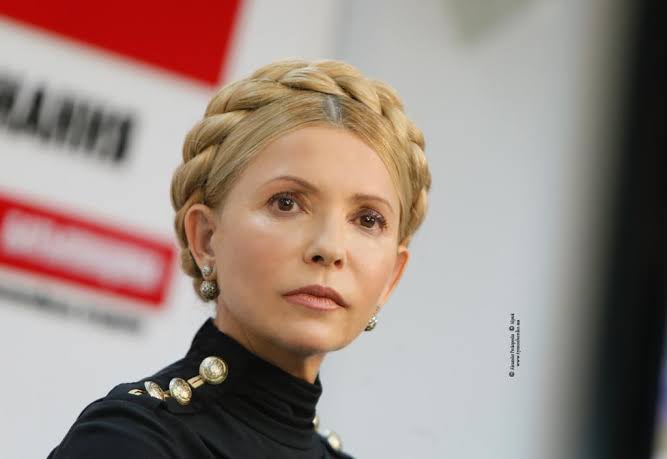Russia has recently added former Ukrainian Prime Minister Yulia Tymoshenko to its wanted list, as reported by Russian state media. The listing, which appears in the Interior Ministry’s database, places Tymoshenko among other notable figures, including Ukrainian President Volodymyr Zelenskyy and former President Petro Poroshenko. The charges against Tymoshenko remain unspecified, adding to the intrigue and tension surrounding this development.
The Context of Yulia Tymoshenko’s Inclusion
Yulia Tymoshenko, a prominent Ukrainian politician and leader of the Batkivshchyna (Fatherland) party, has long been a significant figure in Ukrainian politics. Her addition to Russia’s wanted list signals escalating tensions between Russia and Ukraine, further straining relations amidst the ongoing conflict. This action follows a pattern of targeting Ukrainian leaders and officials who have stood firm against Russian aggression.
Other Notable Figures on the List
Tymoshenko joins a list that includes Ukrainian President Volodymyr Zelenskyy and his predecessor, Petro Poroshenko. Both have been vocal opponents of Russia’s actions in Ukraine and have faced various accusations and threats from Moscow. Mediazona, an independent Russian news outlet, reported that Zelenskyy and Poroshenko have been on the list since at least late February.
Alleged Mercenary is Former Norwegian Politician : Russia’s Target in Ukraine
International Implications
The list also extends beyond Ukrainian borders, including international figures such as Kaja Kallas, the Prime Minister of Estonia, a NATO and EU member. Kallas has been a strong advocate for military aid to Kyiv and harsher sanctions against Moscow. Her inclusion on the list underscores Russia’s broader conflict with Western nations supporting Ukraine.
Russian officials claim Kallas is wanted due to Estonia’s efforts to remove Soviet-era monuments, which are viewed as symbols of past oppression. Russia’s laws against the “rehabilitation of Nazism” and the “desecration” of war memorials are cited as the basis for these charges.
The Broader Impact
Other notable figures on Russia’s wanted list include cabinet ministers from Estonia and Lithuania, and the International Criminal Court prosecutor who prepared a war crimes warrant for President Vladimir Putin. Additionally, Kyrylo Budanov, head of Ukraine’s military intelligence, has been charged with what Russia describes as “terrorist” activities, including drone strikes on Russian infrastructure.
Yulia Tymoshenko’s Political Background
Yulia Tymoshenko has been a central figure in Ukrainian politics for decades. She served as Prime Minister in the mid-2000s and has been a prominent advocate for Ukrainian sovereignty and European integration. Her political career has been marked by both significant influence and controversy, including a high-profile imprisonment in 2011 on charges of abuse of power, which many viewed as politically motivated.
The specific charge for which Tymoshenko was tried and convicted in 2011 related to a natural gas deal she signed with Russia in 2009. As Prime Minister, Tymoshenko negotiated a contract with Russian Prime Minister Vladimir Putin to resolve a pricing dispute that had led to a temporary suspension of gas supplies to Ukraine and several European countries. The Ukrainian government, under President Viktor Yanukovych, argued that Yulia Tymoshenko had abused her power by pushing through the deal without proper authorization from her cabinet, resulting in Ukraine paying an excessively high price for the gas.
Georgia’s Controversial Foreign Agent Law Sparks Protests and Presidential Veto Threat
The trial, which lasted from June to October 2011, was widely criticized for its political overtones. Many observers, including international organizations and Western governments, viewed the proceedings as politically motivated, aimed at discrediting and sidelining Yulia Tymoshenko, who was a key opposition figure to President Yanukovych. During the trial, Tymoshenko maintained that her actions were in Ukraine’s national interest and that the charges against her were baseless.
Reactions and Future Implications
As of now, Tymoshenko and her Batkivshchyna party have not commented on her inclusion on Russia’s wanted list. The move is likely to heighten tensions between Russia and Ukraine, further complicating diplomatic efforts and peace negotiations. It also raises questions about Russia’s broader strategy and the potential for escalated actions against Ukrainian officials and their international supporters.
The inclusion of Yulia Tymoshenko on Russia’s wanted list is a significant development in the ongoing conflict between Russia and Ukraine. It highlights the increasing tension and the broad scope of individuals targeted by Russian authorities. As the situation evolves, the international community will be closely watching the implications for regional stability and the broader geopolitical landscape.



